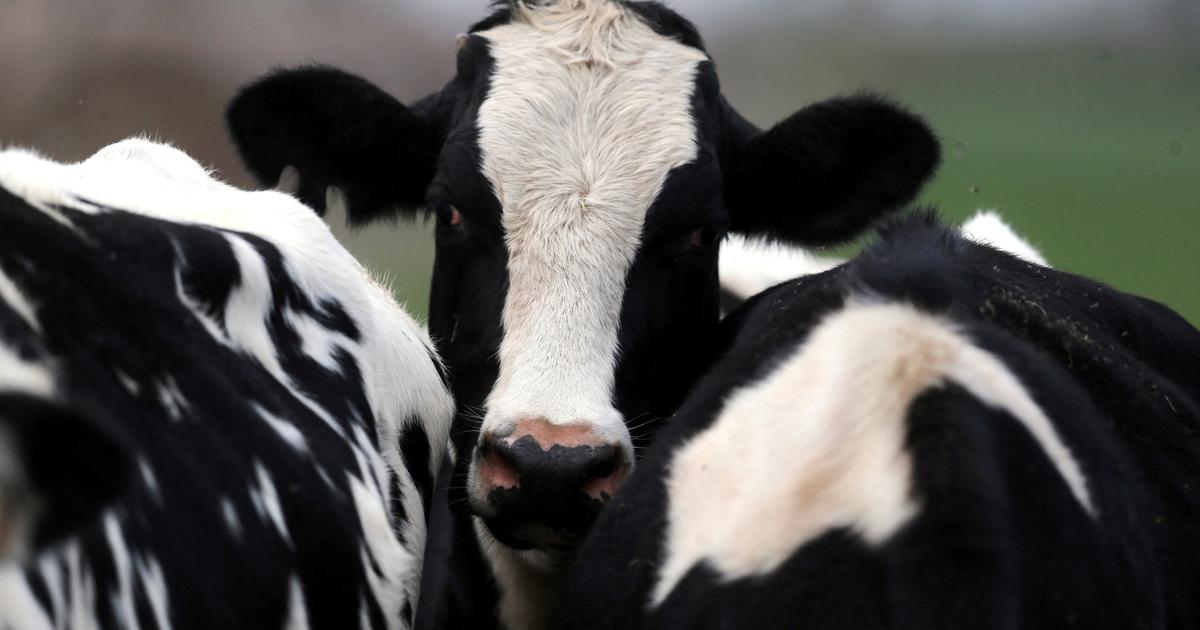- Click to share on Facebook (Opens in a new window)
- Click to share on Twitter (Opens in a new window)
- Click to share on LinkedIn (Opens in a new window)
- Click to email a friend (Opens in a new window)
Alert for new swine flu discovered in China 0:42
(CNN) - While covid-19 infections exceed 10 million globally, news of a disease with pandemic potential also comes from China, which was where the coronavirus emerged.
It is a new swine flu that was discovered by Chinese scientists who recorded their findings in a study published Monday in the scientific journal Proceedings of the National Academy of Sciences ( PNAS).
This is what we know:
1. What is it?
It is a new type of swine flu that can infect humans. The disease, which the researchers called the G4 virus, genetically descends from the H1N1 swine flu that caused a global pandemic in 2009.
2. How did they discover it?
The researchers discovered G4 during a pig surveillance program that ran from 2011 to 2018, in which they collected more than 30,000 pig nasal swab samples from slaughterhouses and veterinary teaching hospitals in 10 Chinese provinces.
Of these samples, the researchers identified 179 swine influenza viruses, but not all of them were of concern. Some only appeared one year out of the show's seven, or eventually declined to non-threatening levels.
But the G4 virus continued to appear in pigs, year after year, and even showed a sharp increase in the pig population after 2016.
Chinese researchers discovered a new type of swine flu that can infect humans and has the potential to cause a future pandemic, according to a study published Monday https://t.co/GP3zu0HO8A pic.twitter.com/USjOie3Jkx.
- CNN in Spanish (@CNNEE) June 30, 2020
3. How dangerous is it?
Chinese researchers say this new type of swine flu has the potential to cause a future pandemic. But scientists around the world warn that the virus does not currently appear to pose an immediate threat to global health.
"Pigs are considered important hosts or 'mixing vessels' for the generation of pandemic influenza viruses. Systematic surveillance of influenza viruses in pigs is essential for early warning and preparation for the next potential pandemic, "the researchers wrote in the study.
According to the researchers, G4 can infect humans and can rapidly replicate within our airway cells. And although G4 contains H1N1 genes, people who have received seasonal flu vaccines will not have immunity.
G4 already appears to have infected humans in China. In Hebei and Shandong provinces, both places with a high number of pigs, more than 10% of pig workers on pig farms and 4.4% of the general population tested positive in a 2016-2018 survey.
MIRA: What are the conditions that predispose to more complications from covid-19?
There is still no evidence that G4 can spread from person to person, but researchers warned that the virus was on the rise among pig populations and that "it could pose a serious threat to human health." Transmission of the pig virus to human could "lead to serious infection and even death," said the study, which called for stricter surveillance and control of the virus's spread.
Dr. Angela Rasmussen, a virologist at Columbia University's school of public health who was not involved in the study, warned the public not to panic.
"Our understanding of what a possible pandemic influenza strain is is limited," Rasmussen posted on Twitter on Monday. "Sure, this virus meets many of the basic criteria, but it is not certain that it will cause a hypothetical influenza pandemic in 2020, or even be a dominant strain in humans."
4. What symptoms does it cause?
Swine flu occurs in people who are in contact with infected pigs. Symptoms are similar to those of normal human flu and may include fever, lethargy, poor appetite, cough, runny nose, sore throat, nausea, vomiting, and diarrhea.
LOOK: 3 business models that could stay after the pandemic
5. How can you stop?
The World Health Organization confirmed in an email to CNN on Tuesday that agency officials are carefully reading the new data that has emerged about the swine flu virus.
"The Eurasian avian-type swine influenza virus is known to circulate in the Asian swine population and can infect humans sporadically. Twice a year during influenza vaccine composition meetings, all virus information is reviewed and the need for new vaccine candidates is discussed. We will read the document carefully to understand what is new, "WHO spokesman Christian Lindmeier said in the email.
MIRA: Family members waited with coffins at the door of a cemetery in Bolivia, before the workers stopped for fear of coronavirus
"This shows the importance of disease surveillance in animal populations, as well as collaborations with WHO Collaborating Centers, including the US Centers for Disease Control and Prevention (CDC) and having a liaise with community stakeholders and stay in touch with influenza vaccine developments and candidates, ”said Lindmeier. “She also emphasizes that we cannot lower our guard against the flu; we remain vigilant and continue to monitor even during the covid-19 pandemic. ”
The new study "comes as a healthy reminder that we are constantly at risk of a new emergence of zoonotic pathogens and that farm animals, with which humans have more contact than wildlife, may act as the source of major pandemic viruses, ”said James Wood, head of the department of veterinary medicine at the University of Cambridge, who was not involved in the study, in a written statement distributed by the UK-based Science Media Center on Monday.
To decrease the risk of this happening, farmers and Chinese authorities should control the spread of the virus among pigs and closely monitor people working with the animals, the team said.
6. Could there be a vaccine?
"The authors have conducted extensive research into the risks of emerging swine flu viruses in China and show that there is evidence that they can pose a risk to human health, in particular that they can replicate in human cells and they may already be infecting some pig farmers in China, "Wood said. "Current vaccines may not adequately protect against them."
As with other diseases, you are susceptible to developing a vaccine, but it depends on many factors.
For H1N1, from which it is derived, a vaccine was available in October 2009, four months after the pandemic was declared. For the covid-19, which this Tuesday marks 6 months of registering the first cases, there is not yet one available.
swine flu








